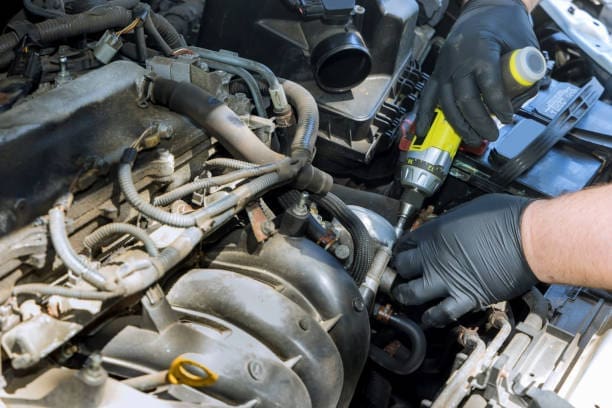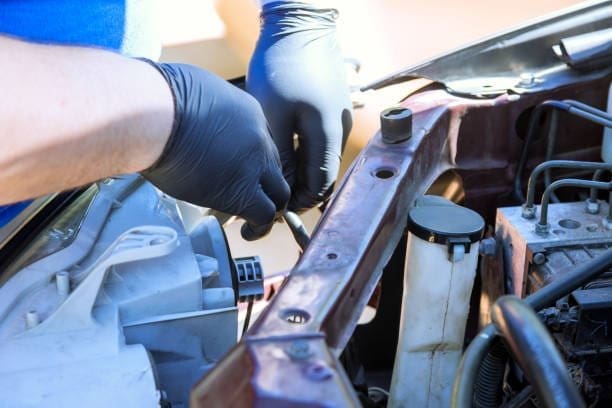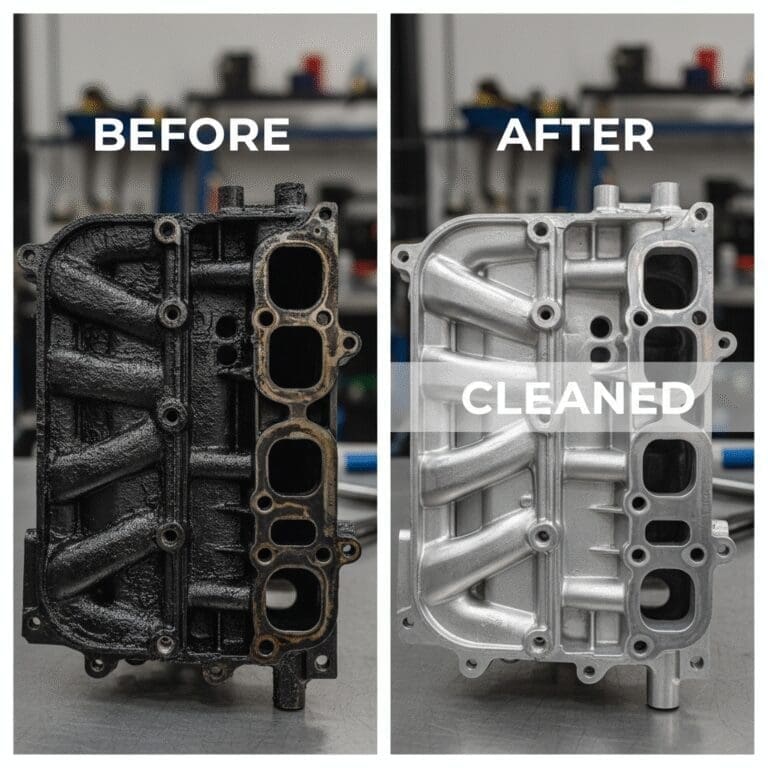Why DPF Removal Is Against the Law plays a crucial role in reducing the environmental impact of diesel engines by capturing and storing exhaust soot, thereby preventing harmful emissions from being released into the atmosphere. However, there has been a growing trend among some vehicle owners to remove these filters in pursuit of enhanced performance or reduced maintenance costs. This article will explore why DPF removal is against the law, the environmental and health implications of such actions, and the penalties for non-compliance.
Understanding Diesel Particulate Filters (DPFs)
Table of Contents
Toggle
What is a DPF?
A Diesel Particulate Filter (DPF) is a device designed to remove particulate matter (PM) or soot from the exhaust gas of a diesel engine. These filters capture soot particles and periodically burn them off in a process known as regeneration, which reduces the emissions of harmful pollutants.
How Do DPFs Work?
DPFs work by trapping soot and other particulate matter in a filter substrate. Over time, these particles accumulate and need to be burned off to prevent clogging. This is done through passive regeneration, which occurs naturally during normal driving conditions when the exhaust temperature is sufficiently high, or active regeneration, which involves injecting extra fuel into the exhaust system to raise the temperature and burn off the soot.
Benefits of DPFs
- Environmental Protection: DPFs significantly reduce the emission of particulate matter, which contributes to air pollution and health problems.
- Compliance with Emissions Standards: DPFs help vehicles meet stringent emissions regulations set by governments to protect public health and the environment.
- Improved Air Quality: By capturing harmful pollutants, DPFs contribute to cleaner air, especially in urban areas with high traffic density.
The Legal Framework
Emissions Regulations
Governments worldwide have implemented strict emissions regulations to combat air pollution and protect public health. In many countries, vehicles must comply with standards such as the Euro emissions standards in Europe or the Environmental Protection Agency (EPA) regulations in the United States. These standards mandate the use of DPFs in diesel vehicles to reduce particulate emissions.
The Prohibition of DPF Removal
Removing a DPF is illegal because it directly contravenes emissions regulations designed to limit harmful pollutants. Operating a vehicle without a DPF can lead to significantly higher emissions of particulate matter, nitrogen oxides (NOx), and other pollutants, which pose serious environmental and health risks.
Legal Penalties
Penalties for DPF removal can vary by country and region but typically include:
- Fines: Vehicle owners caught with a removed DPF can face substantial fines.
- Vehicle Impoundment: Authorities may impound vehicles that do not comply with emissions standards.
- Failed Inspections: Vehicles without DPFs will fail emissions inspections, making it illegal to operate them on public roads.
- Repair Orders: Owners may be required to reinstall a DPF and pass a subsequent inspection to ensure compliance.
Environmental and Health Implications
Increased Emissions
Removing a DPF can lead to a dramatic increase in harmful emissions, including:
- Particulate Matter (PM): Without a DPF, diesel engines emit significantly higher levels of particulate matter, which can penetrate deep into the lungs and bloodstream, causing respiratory and cardiovascular diseases.
- Nitrogen Oxides (NOx): DPF removal can also lead to higher NOx emissions, which contribute to smog formation, acid rain, and respiratory problems.
- Hydrocarbons and Carbon Monoxide: Elevated levels of these pollutants can result from DPF removal, exacerbating air quality issues.
Health Risks
The health implications of increased diesel emissions are severe. Particulate matter and NOx are linked to various health problems, including:
- Respiratory Issues: Exposure to diesel emissions can cause asthma, bronchitis, and other respiratory conditions.
- Cardiovascular Diseases: Particulate matter can enter the bloodstream, leading to heart attacks, strokes, and other cardiovascular problems.
- Premature Death: Long-term exposure to high levels of diesel emissions is associated with an increased risk of premature death.
Environmental Damage
The environmental consequences of DPF removal extend beyond air quality:
- Climate Change: Increased emissions of black carbon, a component of particulate matter, contribute to global warming by absorbing sunlight and heating the atmosphere.
- Ecosystem Harm: Pollutants from diesel emissions can deposit on soil and water, affecting plant and animal life and disrupting ecosystems.
- Smog Formation: Elevated NOx levels contribute to the formation of ground-level ozone, a key component of smog, which can damage crops and forests.
Misconceptions About DPF Removal

Performance Gains
Some vehicle owners believe that removing the DPF will lead to performance improvements, such as increased power and fuel efficiency. However, these gains are often minimal and come at the cost of significantly higher emissions and potential legal repercussions.
Reduced Maintenance Costs
Another common misconception is that DPF removal reduces maintenance costs. While it’s true that DPFs require periodic cleaning or replacement, the cost of fines, repairs, and potential legal issues far outweigh any savings from removing the filter.
Alternative Solutions
Instead of removing the DPF, vehicle owners can consider alternative solutions to address performance and maintenance concerns:
- Professional Tuning: A professional tuner can optimize engine performance without removing emissions control devices.
- Regular Maintenance: Proper maintenance, including regular DPF cleaning, can prevent clogging and extend the filter’s lifespan.
- Upgraded Components: High-quality exhaust components and filters can improve performance while complying with emissions standards.
The Role of Technology
Advanced Emissions Control
Technological advancements have led to the development of more efficient and durable DPFs and other emissions control devices. Modern DPFs are designed to minimize maintenance requirements and maximize performance, reducing the need for removal.
Monitoring and Diagnostics
Many modern vehicles are equipped with advanced monitoring and diagnostic systems that alert owners to issues with the DPF and other emissions control systems. These systems can help identify problems early and prevent costly repairs or replacements.
Aftermarket Solutions
The aftermarket industry offers a range of solutions for improving vehicle performance while complying with emissions regulations. High-performance exhaust systems upgraded DPFs, and professional tuning services can help owners achieve their desired results without breaking the law.
Conclusion
Removing a Diesel Particulate Filter is not only illegal but also harmful to the environment and public health. DPFs play a vital role in reducing emissions of particulate matter, nitrogen oxides, and other pollutants, helping to protect air quality and human health. The penalties for DPF removal are severe, and the perceived benefits are outweighed by the significant risks and costs.
Instead of resorting to illegal modifications, vehicle owners should explore alternative solutions for enhancing performance and reducing maintenance costs. By embracing technology and adhering to emissions regulations, we can all contribute to a cleaner, healthier environment for future generations.



